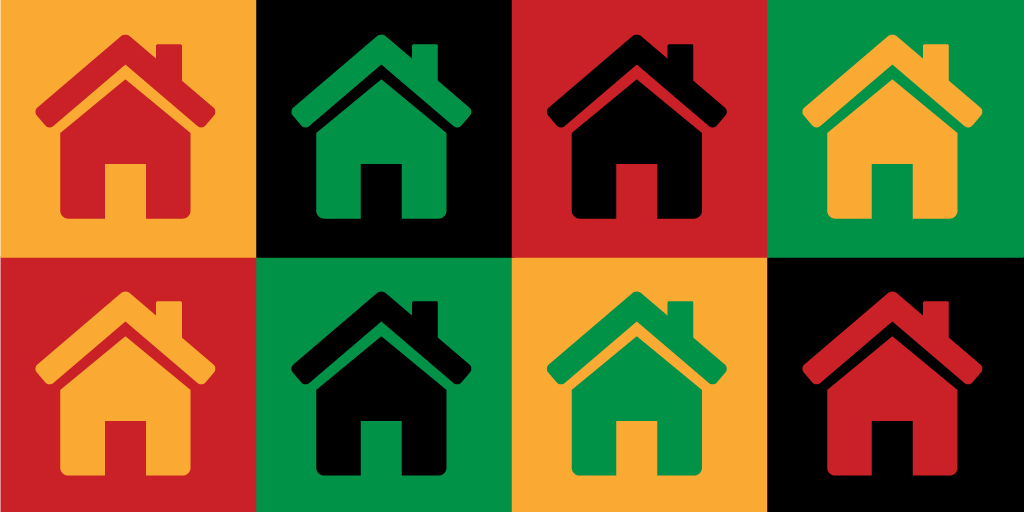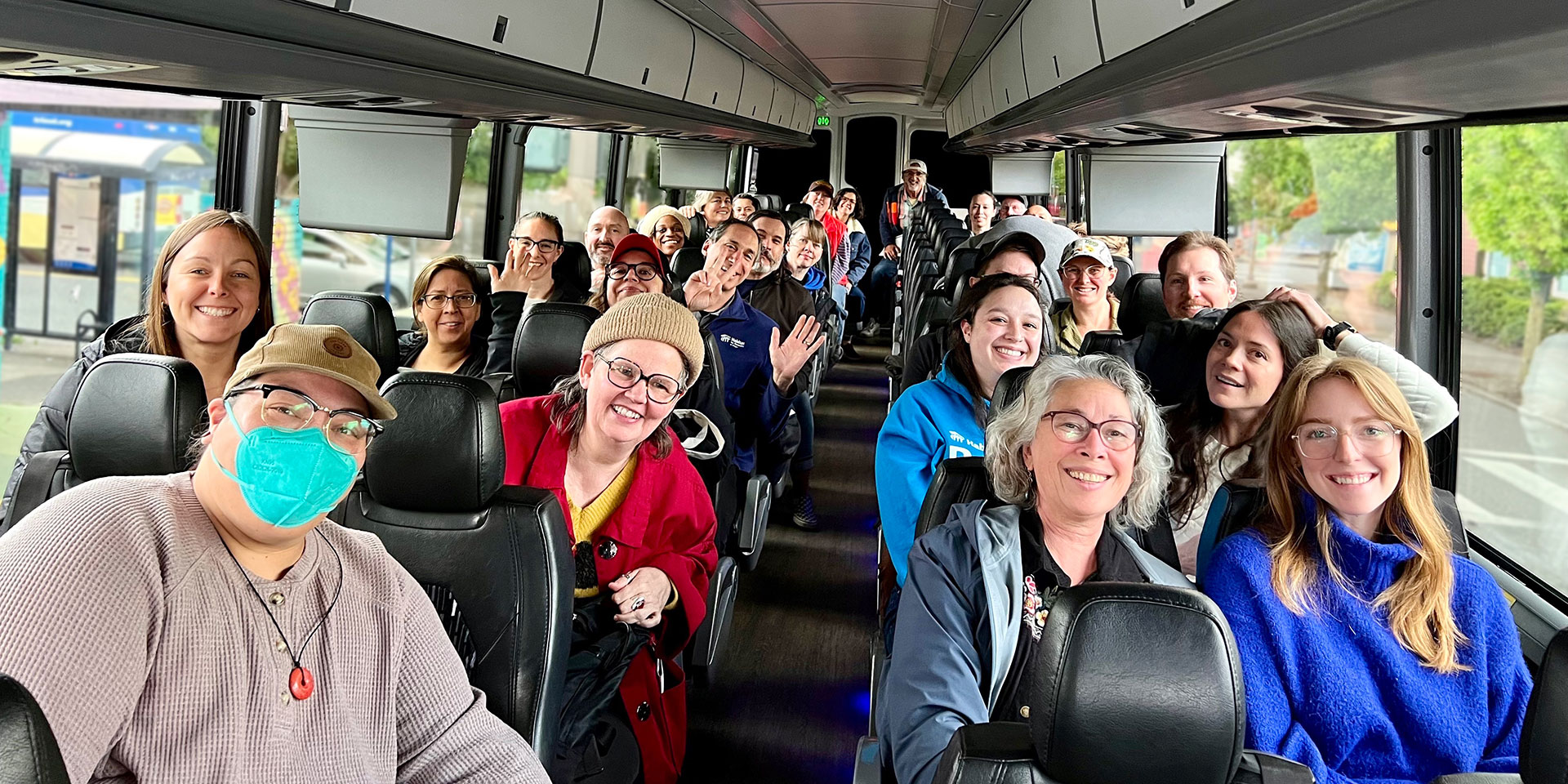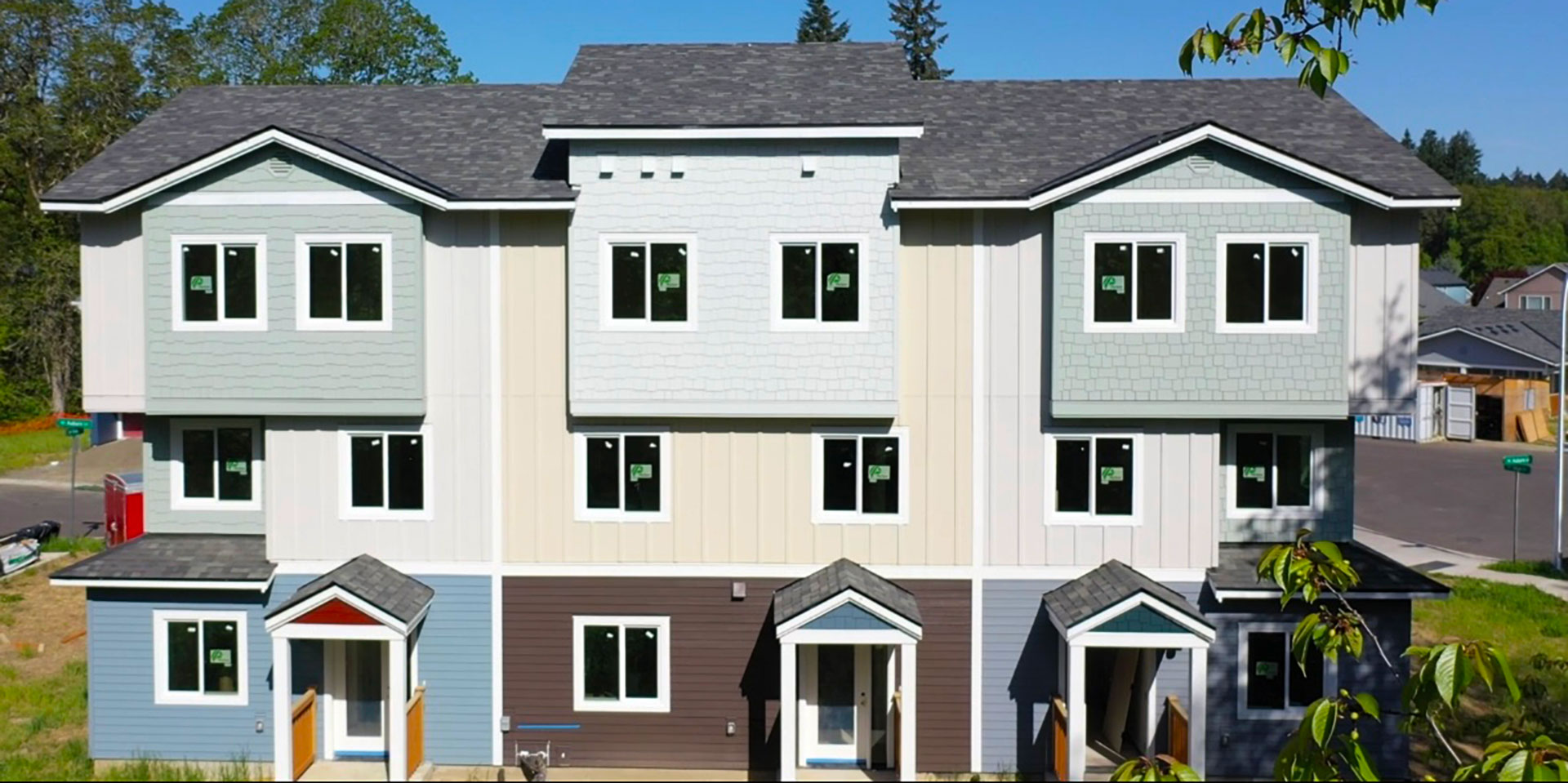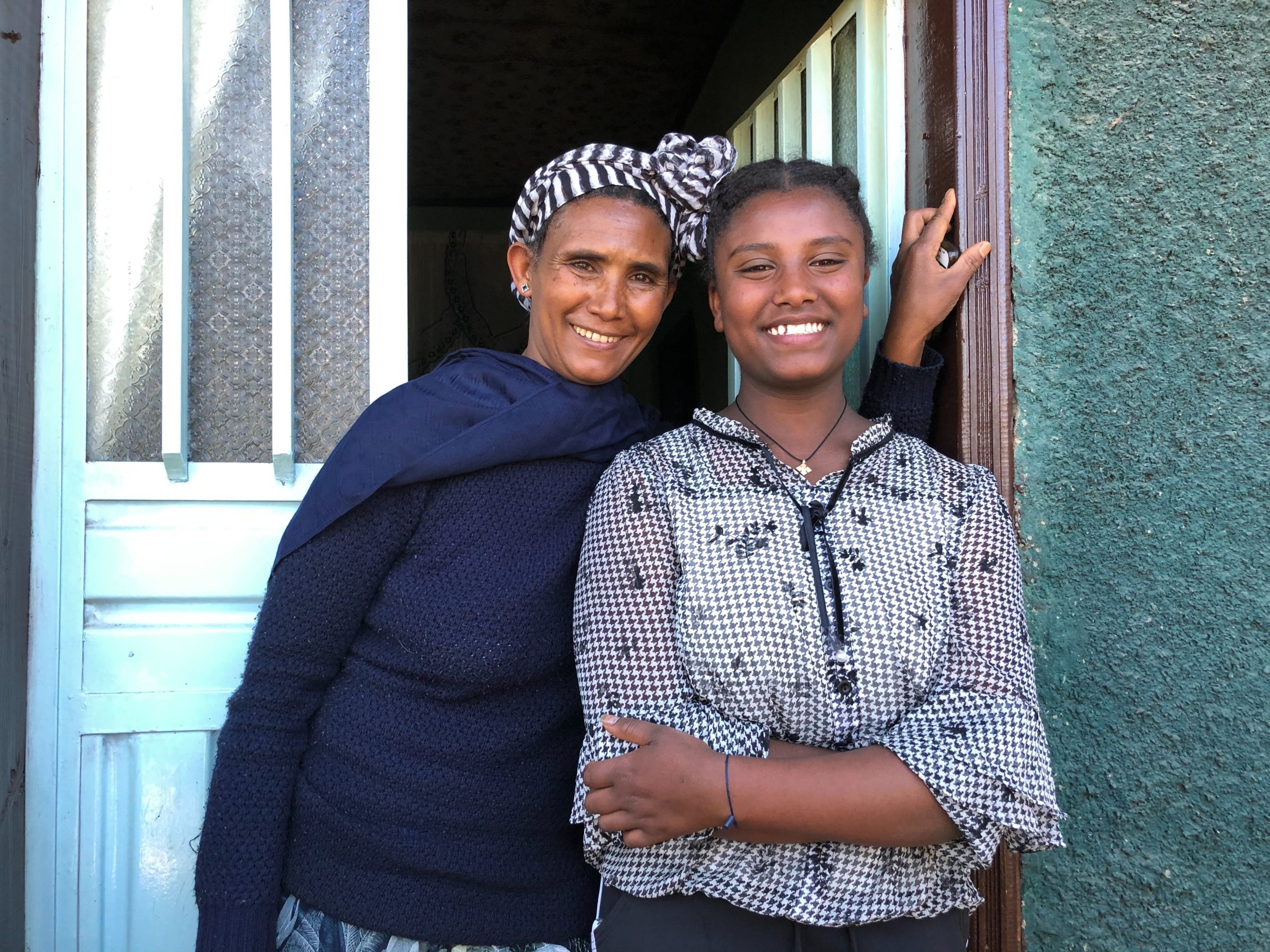 As Steve Messinetti mentioned in our last Ethiopia blog post, one can wonder why we’ve come so far around the globe to work on a few latrines. Global Village has much more of a mission than the physical effort. The genuine exchange among partner families and fellow Habitat staff is deeply affecting to everyone on this team. And our eyes are opening ever wider to the complexity of this country.
As Steve Messinetti mentioned in our last Ethiopia blog post, one can wonder why we’ve come so far around the globe to work on a few latrines. Global Village has much more of a mission than the physical effort. The genuine exchange among partner families and fellow Habitat staff is deeply affecting to everyone on this team. And our eyes are opening ever wider to the complexity of this country.
We are 15 people ranging in age from 17 to over 60. On a given day, half of us are on the tight build site with family members and Habitat Ethiopia staff creating a total of four latrine buildings to be used by a total of 28 families, or about 100 people. We have also traveled outside of Addis to Debre Berhan: a small city about 2-3 hours from the capital. Since 2005, Habitat Portland/Metro East has been one of many affiliates supporting an extraordinary building project – 600 Habitat homes in this area alone.
We understand this is the largest single Habitat community in the world. This whole new neighborhood spurred a vibrant new quarter of the town and over 3,000 homes are there now. We met two families who graciously welcomed us, sharing coffee and stories. Ethiopia is the birthplace of coffee and our daily coffee breaks are really a ceremony of hospitality at the center of family and friendship. Popcorn, roasted barley and wheat rolls or bread round out the experience.
The families shared how important it was for them to own their home, rather than renting. One homeowner was Sindutu and her 15-year old daughter, Helene. Sindutu’s warmth and determination infused the visit as she explained her plans to grow her business that wasn’t possible five years ago.
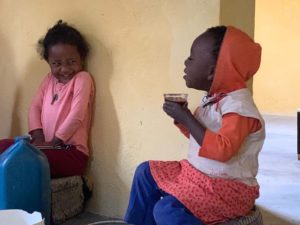 As Sindutu and her neighbors established themselves in their homes, they found they could make improvements. A small store at the front of one home was now the primary income – making injera (the traditional flat bread made from the grain called teff) to sell to the neighborhood was another. The ability to begin a poultry business and small garden was another way Sindutu has been improving her life and her determination inspired her daughter and two sons to pursue their opportunities to the fullest.
As Sindutu and her neighbors established themselves in their homes, they found they could make improvements. A small store at the front of one home was now the primary income – making injera (the traditional flat bread made from the grain called teff) to sell to the neighborhood was another. The ability to begin a poultry business and small garden was another way Sindutu has been improving her life and her determination inspired her daughter and two sons to pursue their opportunities to the fullest.
Owning an affordable home, having access to electricity and water, and being surrounded by good neighbors are all essential ingredients.
While homes continue to be built or repaired in Addis, sanitation and hygiene is the focus for Habitat’s work in the capital city. Twenty-eight families will have access to the four toilet buildings and two kitchens we are making. Many of the people in these families are quite elderly or have disabilities making them especially vulnerable to health-related hardship. The new toilet structures will be made of concrete blocks, each have two stalls/rooms with seats over a cistern collecting the waste – a bit like the kind of non-flush toilets you might find at parks or campgrounds in the US. The families will work together to maintain them using funds they’ve saved together.
Sanitation is an enormous problem in urban areas. Without proper toilets in the slums, people are left to defecate outside – at the edges of a small yard, or after dark on the side of the road. This uncomfortable reality lives right alongside the beauty of this place. During our rides in the van to and from the build site and as we share meals together with the Habitat Ethiopia staff, we’ve come to understand more of the historical, economic, and political forces shaping the growth of the slums and the push and pull between tradition and modernity that people experience here. One thing everyone agrees on: everyone deserves a decent place to live.
